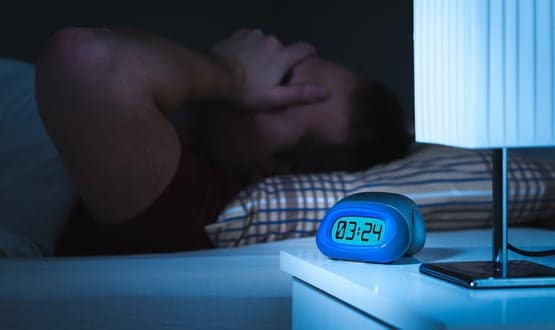From www to zzz
- 10 March 2014

Most of us have trouble getting some shut-eye at one time or another. So perhaps it’s not surprising that the phrase “how to sleep” yields more than 570m search results when it is dropped into Google.
For many, though, poor sleep can be a serious, long-term problem. Indeed, latest government statistics suggest that, of the 38% of people in the UK who suffer from at least one insomnia symptom, around a quarter experience chronic insomnia at any given time.
As well as causing tiredness, research indicates that insomnia makes us susceptible to other more serious physical conditions; for instance, sleeping fewer than six hours a night increases the risk of high blood pressure, stroke, diabetes, depression and heart disease.
Despite these findings, and despite the fact that sleep difficulty is now the UK’s most widely reported psychological disorder, often the only treatment available on the NHS is a course of tablets.
This comes at a cost to the taxpayer of more than £25m for more than 10m prescriptions each year. Yet sleeping pills generally bring only short-term benefits, according to Peter Hames, co-founder and chief executive of Sleepio, which uses web and mobile technology to deliver a drug-free solution to the problem.
“Whilst sleeping tablets can sometimes relieve the symptoms of insomnia, they don't treat the cause,” he says. “A much better alternative is cognitive behavioural therapy for insomnia (CBTi), which has been shown in numerous controlled trials to be many times more effective in addressing long-term insomnia than any pills or potions.”
Drug-free approach
CBTi works by training insomniacs to use techniques that address the mental factors associated with their condition – such as the 'racing mind' – and to overcome the worry and negative emotions that accompany the experience of being unable to sleep.
It helps them establish a healthy sleep pattern by developing a 'pro-sleep' routine and building a strong connection between bed and successful sleep; so that falling asleep and staying asleep in bed become more automatic and natural.
“I developed insomnia five years ago and it was one of the worst experiences of my life,” says Hames. “Having studied psychology at university, I was aware that evidence-based talking therapies are an effective way of overcoming poor sleep. However, my doctor would only give me sleeping pills!
“I therefore ended up self-administering a course of cognitive therapy from books by sleep expert Professor Colin Espie and was cured in six weeks. This inspired me to find a way of getting a similar intervention to others using technology and thus Sleepio was born. I rang Professor Espie and we’ve been working closely together ever since.
“Several decades of evidence shows that CBTi can teach people how to fall asleep faster, stay asleep and feel better during the day,” says Hames. “It is usually delivered over the course of six to eight weekly face-to-face sessions with a trained therapist, who teaches the patient techniques they can use at home to help themselves improve their sleep.
“Unfortunately, CBTi is expensive to deliver face-to-face and difficult for many people to access,” he says. “Which is where we come in; Sleepio is a digital sleep improvement program based on proven cognitive techniques, which takes your personal sleep data and turns it into behavioural medicine. It allows you to access these techniques and receive continuous support – all via the internet.”
How it works
- First, you complete an online sleep questionnaire that enables Sleepio to tailor the programme to you
- Then, once a week, you log on to Sleepio.com for a personalised 20-minute session with your virtual sleep expert, The Prof, who teaches you personalised CBT sleep improvement techniques to get your sleep schedule, thoughts, lifestyle and bedroom into shape.
- Between sessions, you record your sleep in an online sleep diary and put the techniques you learn into practice with the help of online tools, text and email reminders, and expert articles.
- Support is provided by the anonymous and secure online community of other people on the course and ‘graduates’ who’ve been through the programme, plus a weekly live group session with a sleep expert from the Sleepio community.
Hames says the programme is fully automated, yet personalised to each user’s problems and progress. “Using data from the upfront sleep test and sleep diaries collected by the user or their personal tracking device, algorithms tailor content to the user’s specific needs.
“For instance, in a two-minute section of one of the CBT sessions, we worked out that there are 2.3m possible personalised combinations of content. As such, ours is the only scalable, non-drug solution to long-term poor sleep that can be compared in effectiveness to face-to-face therapy.”
Positive results
Indeed, Hames says that the world’s first placebo-group randomised clinical trial for a digital sleep intervention showed that Sleepio helped poor sleepers fall asleep 54% faster on average; reduced night time awakenings by up to 63%; boosted daytime energy and concentration by up to 58%; and helped 75% of participants achieving healthy sleep within weeks.
“These peer-reviewed results showed Sleepio to be many times more effective than sleeping pills,” he says. “Moreover, by integrating community peer support accessible 24/7, immersive mobile access and a human face in 'The Prof', we have also focused on making Sleepio more like entertainment than medicine – something that users actually look forward to doing each week.”
Available online, via the NHS Apps Library and as a boxed version from Boots, Sleepio was chosen as one of the first apps to be integrated with Jawbone’s self-monitoring UP wristband.
As well as recently completing successful trials with two global health insurers, Hames says the technology is being piloted with several GPs using Sleepio Clinic, an online dashboard that will allow them to track patients’ progress through the Sleepio programme and access free online tools and sleep information.
“Most importantly, our users love it,” enthuses Hames. “Some 87% say they would recommend Sleepio to a friend and many continue to be active in our online community long after completing the programme. That kind of endorsement certainly helps me sleep at night.”
Links: Sleepio website www.sleepio.com On NHS Choices: http://apps.nhs.uk/app/sleepio/

This year’s EHI Awards, which will be presented at a black tie dinner in October, have more categories than ever before. There are 14 categories to enter, the details of which can be found on the dedicated awards website. Entries must be received by 9 May.
For information about sponsorship opportunities for the awards or to book tickets, contact EHI’s events team on 0207 785 6924.




